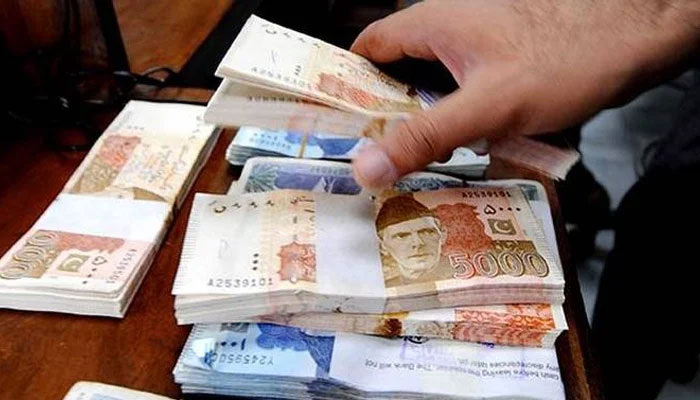Austerity panel seeks 15pc cut in non-combat defence budget
Ministry of Defence has already agreed to contribute their share to national exercise amid serious financial crisis faced by country
ISLAMABAD: The Austerity Committee, set up by the present government to save taxpayers’ money from government spending, recommended 15 percent cut in the non-combat defence budget.
More importantly, the Ministry of Defence has already agreed to contribute their share to the national exercise in view of the serious financial crisis faced by the country.
According to the committee report’s recommendation, “non-combat defence budget be cut down by 15 percent. While agreeing to contribute their share to the national exercise, Secretary Ministry of Defence was of the view that before applying any cut on defence budget, ministries of Finance and Defence may review the same in detail.”
The recommendations of the committee to which the prime minister has already agreed to, if implemented, will massively cut the perks, privileges and other luxuries enjoyed by the ruling elite, parliamentarians, judges, generals, civil and military officers from taxpayers’ money. This austerity drive, however, requires the support of all key stakeholders including the prime minister and his cabinet, parliamentarians, judges, civilian and military bureaucracy and others.
Some highlights of these proposals as reported by The News on Friday include major cut in the size of cabinet, no development funds for MPs; no pension beyond Rs500,000 per month to anyone from public kitty; no use of SUVs by government officials; withdrawal of all perks of retired civil servants, judicial officers of superior courts and of uniformed services viz vehicles, security, support staff and utilities; 15 percent cut in the salary and allowances of all MNAs, MPAs and Senators; 15 percent cut in the current budget of all ministries, divisions, departments etc at federal and provincial levels; only one plot be allowed to all government servants, bureaucrats, judges and armed forces’ officers; more than one plot already allotted as well as additional land allotments be cancelled and put to open auction; No new greenfield project except in special industrial zones under CPEC; ban on recruitment; scaling down of security protocols for all.
Capping the pension and bar on allotment of second plot will require support of the judges of the superior judiciary. A retired superior judiciary judge receives over one million rupee as pension besides other perks and privileges.
Knowing well that the country direly needs tight belting, the committee noted that implementation of these recommendations would be a tough task but given the fiscal conditions of the country, it is imperative that all segments of the society, particularly those paid out of public funds, should contribute to the austerity efforts.
Some of the recommendations of the committee, which were not part of The News story on Friday include introduction of one day work from home with only essential staff present in offices; day light saving should be introduced; closure of markets at 8 pm across the country; and use of energy efficient electric appliance.
Through its recommendations, the committee aims to effect savings of up to Rs1,000 billion per year in the medium term. The expected per year savings include Rs200 billion from subsidies; Rs200 billion from development budget; Rs55 billion from cuts in spending on running of civil government; Rs60-70 billion from Single Treasury Account; Rs100 billion from conservation measures; Rs174 billion from non-strategic SOEs (state operating entities) and 15 percent of non-combat expenditure.
Contrary to what the committee, headed by reputed former secretary Nasir Khosa, has recommended not only the prime minister has further expanded his cabinet but the government is also contesting in the Supreme Court to undo the landmark decision of Islamabad High Court against allotment of plots on throwaway prices to judges, bureaucrats and others.
-
 Prince Harry And Meghan Unlikely To Meet Royals In Jordan
Prince Harry And Meghan Unlikely To Meet Royals In Jordan -
 Hero Fiennes Tiffin Shares Life-changing Advice He Received From Henry Cavill
Hero Fiennes Tiffin Shares Life-changing Advice He Received From Henry Cavill -
 Savannah Guthrie's Fans Receive Disappointing News
Savannah Guthrie's Fans Receive Disappointing News -
 Prince William Steps Out For First Solo Outing After Andrew's Arrest
Prince William Steps Out For First Solo Outing After Andrew's Arrest -
 Jake Paul Chooses Silence As Van Damme Once Again Challenges Him To Fight
Jake Paul Chooses Silence As Van Damme Once Again Challenges Him To Fight -
 Google Disrupts Chinese-linked Hacking Groups Behind Global Cyber Attacks
Google Disrupts Chinese-linked Hacking Groups Behind Global Cyber Attacks -
 Four People Killed In Stabbing Rampage At Washington Home
Four People Killed In Stabbing Rampage At Washington Home -
 Meghan Pushes Prince Harry Into Territory That’s Dangerous To His Brand: ‘She Isn’t Hearing A Word Of It’
Meghan Pushes Prince Harry Into Territory That’s Dangerous To His Brand: ‘She Isn’t Hearing A Word Of It’ -
 Christina Applegate Reflects On Lasting Impact Of Being Molested In Childhood
Christina Applegate Reflects On Lasting Impact Of Being Molested In Childhood -
 Martin Short Makes Big Decision Following Tragic Death Of Daughter
Martin Short Makes Big Decision Following Tragic Death Of Daughter -
 Antarctica’s Mysterious ‘gravity Hole’: What’s Behind The Evolution Of Earth’s Deep Interior?
Antarctica’s Mysterious ‘gravity Hole’: What’s Behind The Evolution Of Earth’s Deep Interior? -
 Hilary Duff Addresses Ashley Tisdale's 'toxic Mom Group' Claims And Matthew Koma's Firey Response
Hilary Duff Addresses Ashley Tisdale's 'toxic Mom Group' Claims And Matthew Koma's Firey Response -
 Jack Hughes's Proximity To Trump Angers Tate McRae Fans
Jack Hughes's Proximity To Trump Angers Tate McRae Fans -
 Neve Campbell Opens Up About Her 'difficult Decision' To Not Sign 'Scream 6'
Neve Campbell Opens Up About Her 'difficult Decision' To Not Sign 'Scream 6' -
 Nobel-winning Scientist Resigns From Columbia University After Epstein Links Revealed
Nobel-winning Scientist Resigns From Columbia University After Epstein Links Revealed -
 Prince William Remarks At BAFTAs 'indicative' Of King Charles Physical, Mental Health Too
Prince William Remarks At BAFTAs 'indicative' Of King Charles Physical, Mental Health Too




